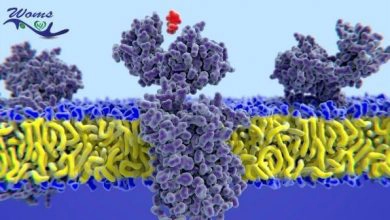Key Benefits of Functional Medicine

Doctors in the existing conventional medical sector frequently concentrate mostly on human disease manifestations instead of the etiology or core source of such sickness.
This helps individuals and clinicians to collaborate, equipping individuals to cooperate and treat the condition’s core sources and improve total health.
A board-certified doctor may detect the severity of such a disorder as well as provide a potentially efficient therapeutic option that enhances the person’s general wellness by treating the primary sources of infection.
General Overview Of Functional Medicine
The term “functional medicine” refers to a style of approaching treatments. Functional medicine is a cutting-edge initiative that seeks to modify how treatment operates by adjusting the specific questions practitioners enquire. It is performed by specialists as well as other registered medical practitioners. One purpose of functional medicine would be to go into greater depth to ensure good health.
Functional medicine is a healthcare approach that focuses on providing a patient’s mental well-being, and evidence-based care. Functional doctors use a multidisciplinary approach to gain a thorough grasp of whatever is going on within the system.
Functional medicine doesn’t at all dismiss conventional medicine; rather, it utilizes it more as a framework for adding additional perspectives toward the assessment, therapy, and avoidance of serious illness. Its main objective is to cure sickness and encourage people to live a better and healthier lifestyle. A happy existence is described by a favorable liveliness that is full of enthusiasm, pleasure, thankfulness, and harmony, rather than merely the lack of illness.
Functional medicine takes a distinct technique for diagnosing and treating illnesses. Rather than just bandaging the disease, it seeks to identify the source of the ailment and determine which one of the body’s natural basic organs is not in order.
Recognizing the preventive, maintenance, and fundamental etiology of complicated serious illnesses is indeed the goal of functional medicine, and that is a customized and comprehensive strategy for healing.
What Is The Purpose Of Functional Medicine Treatment?
The number of patients affected by complicated, chronic conditions such as cardiovascular disease, cancer, diabetes, neurodegenerative disorders, ADHD, autism, and psychological problems is now on the ascent in our community. Fixing the illness has taken control of curing the disease. This shift in phrasing indicates that the patient’s issues are long-term,
However, including a period of pace with the fast medicines, the complaints might well be managed. Instead of constantly removing the branches of various complaints, patients require a technique that promotes recovery by treating the core source of such ailments. This methodology is functional medicine.
What Are The Key Benefits Of Functional Medicine?
Functional medicine’s key benefit is its capacity to manage a broad range of chronic disorders, including:
- Irritable bowel syndrome, ulcers, acid reflux, chronic pancreatitis, and diverticulosis are examples of digestive problems.
- Hyperglycemia, hypertension, and cardiovascular disease are examples of cardiometabolic diseases.
- Thyroid issues, menopause, and tiredness are all hormonal issues.
- Anxiety, headaches, and obsessive-compulsive disorder are examples of neurological and psychological diseases.
- Acne, eczema, and psoriasis are examples of skin ailments.
- Lupus, celiac disease, and rheumatoid arthritis are examples of autoimmune illnesses.
- Better cardiovascular span includes the FM, which works on the organism’s body and improves organs capacity, resulting in a longer cardiovascular span.
Other key benefits of functional medicine include:
- Treatment that is tailored to you: Solutions in functional medicine are designed for particular medical needs. To discover further about your particular biological composition, functional medicine specialists rely heavily on laboratory investigations, such as blood tests, stool samples, and genetic analyses. One intervention is then created to address any inadequacies discovered as a result of the tests.
- Concentrates on the Root Causes: In the traditional therapeutic approach, health providers begin to create a diagnosis before prescribing medications to address that condition. Physicians are less interested in establishing a diagnosis in this modern concept, However, they place a greater emphasis mostly on basic abnormality or aberrations. The principles of a disorder are the fundamental reasons that are sometimes missed by traditional therapeutic approaches. The functional approach aims to treat the fundamental disorder pathways and, as a result, provide you with long-term treatment for any sickness.
- Promoting well-being: To consult a functional medicine specialist, one doesn’t want to feel sick. In reality, a functional medicine doctor can promote one’s overall health by providing advice on diet, vitamins, and other ways to maintain or improve one’s health. This could also enable you to enhance your health and appearance, grow more naturally, and take care of your health in general. A functional medicine practitioner ensures that one’s body, mind, and spirit are interrelated, resulting in an excellent performance.
- Concentrate on chronic illnesses: Functional doctors are especially beneficial in the treatment of serious diseases. They might, for instance, deal with disorders of the adrenal glands, Dementia, Arthritis, Asthma, and Autoimmune illnesses are a type of autoimmune diseases.
Complex medical problems and disorders are more prevalent in elderly people than those in younger people, most of which can be treated by a functional doctor.
- Concentrate on general wellbeing: Health isn’t just the lack of illness; it’s also a sense of optimistic vigor that urges patients to prioritize their health and wellbeing.
Conclusion
Functional medicine is a rapidly developing field of medicine that takes a unique technique to combat and treat complicated and prolonged disorders.
With medical professional collaboration, this technique uncovers the condition’s underlying etiology. This enables your doctor to determine the best appropriate therapeutic approach for one’s condition.
FAQs
Is Functional Medicine a healthy alternative to conventional medicine?
In either the diagnostic or therapy stages, Functional Medicine takes the full organism into account. Functional medicine focuses on treating the underlying etiology of sickness rather than merely the manifestations. Functional Medicine employs therapies that are far healthier and have less detrimental consequences.
Functional medicine: how effective is it?
Around 31% of individuals evaluated at the Center for Functional Medicine increased overall PROMIS worldwide overall health ratings by five points up to a maximum, and that is a medically significant improvement with a discernible impact on everyday living. Twenty-two percent of individuals diagnosed had a five-point improvement or higher in their ratings.
What are some of the benefits of functional medicine?
Instead of only early diagnosis, functional medicine assists the patients in attaining greater fundamental prevention of illness (even well before the illness manifests) (the disease process has already started).




